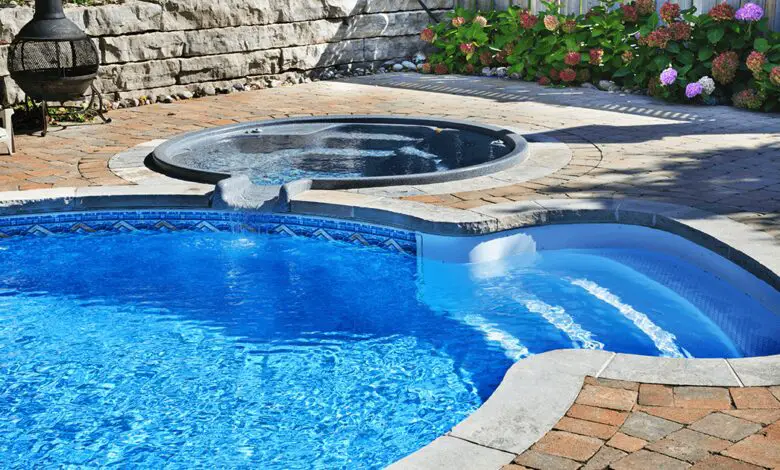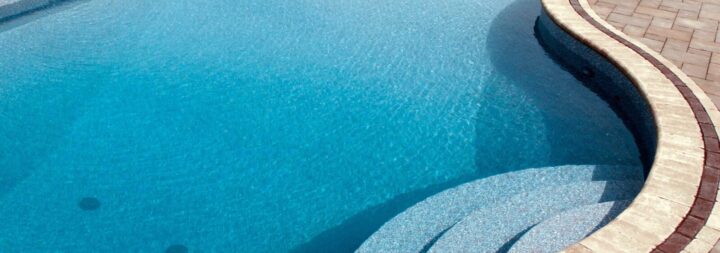Fibreglass Pool Chemical Levels: A Comprehensive Guide

Maintaining the correct chemical balance in your fibreglass pool is crucial for ensuring its longevity and the health of its users. Below, we delve into the key aspects of this important routine task.
Understanding Pool Chemistry

Maintaining the optimal functionality of your fibreglass pool involves carefully managing a delicate balance of various chemicals. These substances play a crucial role in ensuring the cleanliness and safety of the water. Regular monitoring and adjustment of their levels are imperative to uphold the pristine condition of your swimming area, guaranteeing a refreshing and enjoyable swimming experience for you and your loved ones. Luckily for fibreglass pool owners, thanks to the non-porous surface of this material, maintaining chemical levels is relatively straightforward, but must not be neglected!
Importance of pH Levels
The pH level measures the acidity or basicity of the water and plays a significant role in the overall balance. Ideally, the pH should fall between 7.2 and 7.6, providing a comfortable environment for swimmers. However, if the pH levels deviate from this range, it can lead to various issues.
For instance, levels outside the recommended range may cause eye irritation, discomfort to the skin, and even potentially damage the fibreglass shell of your pool. Therefore, it is vital to regularly monitor and adjust the pH level of your pool to uphold its pristine condition and ensure a safe and enjoyable swimming experience for everyone.
The Role of Alkalinity
Alkalinity plays a crucial role as a pH buffer, effectively preventing sudden and significant shifts in water chemistry. By keeping the total alkalinity levels within the optimal range of 80-120 parts per million (ppm), it not only stabilises the pH level but also safeguards against potential issues such as corrosion and scaling. Maintaining the appropriate alkalinity ensures water quality and the longevity of the system, providing a stable and well-balanced environment.
Chlorine and Sanitisation

Chlorine, the most commonly used and recognised sanitiser for lap pools perth, plays a crucial role in maintaining a safe swimming environment. By effectively eliminating bacteria and other harmful organisms, chlorine ensures that the water is clean and suitable for swimmers. To achieve optimal safety, it is recommended to maintain a healthy chlorine level between 1 and 3 parts per million (ppm). This careful balance helps to create a refreshing and enjoyable pool experience for all.
Balancing Your Pool
Effective maintenance includes the crucial step of balancing your water by adjusting its chemical levels based on the results of your water tests. To achieve optimal results, it is recommended to use high-quality pool-grade chemicals and carefully follow the manufacturer’s instructions. Remember, it is important to never mix chemicals together; always add them separately to the water to ensure proper chemical reactions and maintain a safe swimming environment. By diligently following these practices, you can ensure the longevity and enjoyment of your pool for years to come.
Professional Help for Maintenance
While pool maintenance can mostly be a do-it-yourself job, occasionally it pays to seek professional help. Experts with extensive knowledge and experience can take the guesswork out of balancing your chemical levels, ensuring optimal water quality and safety. Additionally, they possess specialised equipment and techniques to efficiently execute the task, saving you time and effort. Entrusting your pool to professionals gives you peace of mind, knowing that your pool is in capable hands and will be properly cared for.
Pool Shocking: A Necessary Routine

“Shocking” your pool, or superchlorinating, is a vital process in maintenance. It involves rapidly increasing the chlorine level for a short duration to effectively eliminate bacteria and algae. This treatment is typically recommended once a week during peak pool usage, ensuring a safe and hygienic swimming environment. During off-peak times, the frequency can be reduced.
When selecting a shock product, it’s crucial to choose one that is specifically designed for fibreglass pools. This ensures that the shell remains undamaged while effectively treating the water. By carefully considering the right shock product, you can maintain the longevity and integrity of your pool while enjoying crystal-clear water throughout the swimming season.
The Significance of Calcium Hardness
The calcium hardness level in your water plays a crucial role in maintaining the health and longevity of your fibreglass shell. When the calcium hardness is too low, it can lead to plaster etching, which can compromise the integrity of the pool surface. On the other hand, excessive calcium hardness can result in scaling not only on the pool surface but also inside your filters and pipes, potentially clogging them over time.
To ensure optimal conditions for your pool, it is recommended to keep the calcium hardness within the range of 200-400 ppm. This balanced level will help prevent any detrimental effects on your shell and maintain the overall water quality. Regular monitoring and appropriate adjustments are key to enjoying a clean and problem-free swimming experience.
Proper Circulation
Proper circulation of pool water is crucial for maintaining a clean and healthy swimming environment. It ensures that the chemicals you add are evenly distributed throughout the pool, effectively preventing the growth of algae and bacteria. By running your pump for at least one hour for every 10 degrees of temperature, you can achieve optimal water circulation and maintain the desired water quality. This simple yet important practice will contribute to the longevity and enjoyment of your pool for years to come.
Conclusion

Maintaining a clean, safe, and well-balanced swimming pool requires consistent care and attention. By regularly monitoring and adjusting the pH and alkalinity levels, maintaining appropriate chlorine and calcium hardness levels, and ensuring proper water circulation, you can safeguard the quality of your water, enhancing the longevity of the system and ensuring a delightful swimming experience.
Whether you choose to handle maintenance independently or seek professional assistance, understanding these key aspects of pool care is crucial. With a well-maintained pool, you can enjoy the pleasure and benefits of swimming right in your backyard, offering countless hours of relaxation, exercise, and fun for all. Remember, a well-maintained pool is not merely an asset; it’s a gateway to a healthier, happier lifestyle.
